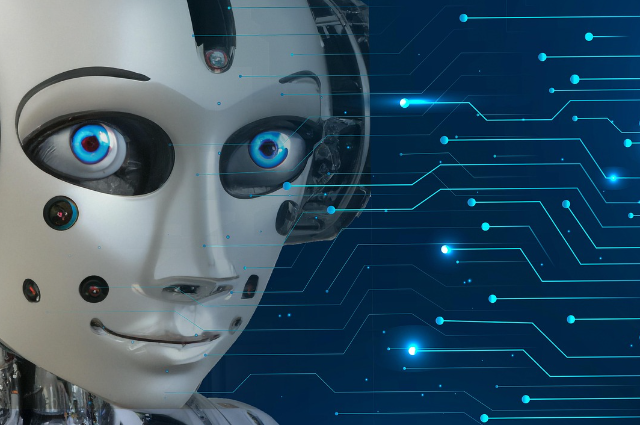
What if the outstanding move of your existence—each utterance captured by a digital assistant, every cardiac arrhythmia logged by a wearable, every late-night query tapped into a glowing screen—was not abstracted into a remote data center, but instead remained immanent, inscribed within the computational substrate of the very device you hold?
Envision an artificial intelligence whose locus of cognition is not a disembodied, panoptic brain in the cloud, but a localized epistemic prosthetic residing in your pocket, safeguarding your data ontology even as it refines itself upon it. This is the core of the topological struggle defining modern AI: should intelligence be instantiated at the edge, in the sovereign territory of the user’s hardware, or continue its centripetal drift toward distant servers beyond individual control? The future of privacy, cognitive agency, and the very architecture of democratic information flow may hinge on this resolution.
The Cloud-Centric Paradigm
The AI paradigm we inhabit was born of the cloud’s gravitational pull. Breakthroughs in natural language processing, computer vision, and machine learning were predicated on vast centralized training regimes, leveraging massive server farms to perform brute-force statistical correlations across petabytes of data.
Inference and training once demanded computational power far beyond any personal device. To have your voice transcribed, your vision classified, or your requests answered with uncanny precision, you entered into a tacit contract: your data—the raw material of your lived experience—would be surrendered to the cloud. For years, this was the accepted cost of a computationally-augmented life: a simple trade of behavioral surplus for AI-driven services.
The Cracks in the Contract
But fractures in this contract have become impossible to ignore. A constant stream of data breaches, state-backed surveillance, and the dawning recognition that surveillance capitalism dominates the digital economy have catalyzed public doubt.
When you interface with a cloud-native AI, who exactly audits your interactions? When your biometric data is uploaded to optimize a “wellness” algorithm, what becomes of that intimate portrait if the company is acquired, bankrupted, or hacked? Corporate assurances of anonymization ring hollow in an age where privacy itself is commodified. In this climate of epistemic insecurity, on-device AI—edge computing—has transformed from a technical curiosity into a political imperative.
The Rise of Edge AI
Edge AI’s ascent is the product of co-evolution in hardware and algorithmic efficiency. Modern smartphones house dedicated Neural Processing Units (NPUs) capable of running machine learning tasks with minimal energy consumption. Meanwhile, models once requiring full data centers have been compressed through pruning, quantization, and knowledge distillation, achieving usability without catastrophic fidelity loss.
What once seemed miraculous—real-time translation without internet, personalized recommendations without server calls—has become baseline expectation. For the individual, this signals a shift from being a passive data subject of remote intelligence to the owner of a personal cognitive apparatus. The locus of control begins to return to the user.
The Persistent Power of the Cloud
Yet the cloud is not obsolete; it is the metropole to the edge’s burgeoning colonies. Centralized models remain vastly more powerful, synthesizing knowledge and executing tasks on scales no device can match. To query the sum of human knowledge, to conduct meta-analysis across global datasets, or to train foundational models still necessitates the cloud’s supremacy.
The battleground, then, is not edge versus cloud, but the demarcation line between them. The critical frontier is the API call—the boundary separating private, contextual intelligence from shared global computation.
Privacy vs. Aggregation
On-device AI ensures that your raw data—your drafts, inner monologues, physiological signals—never leaves your device. Cloud AI, by contrast, thrives on aggregation, producing a “data commons paradox”: the collective intelligence grows with every contribution, but at the expense of individual sovereignty and systemic vulnerability.
Do we prioritize centralized intelligence, or the inalienable right to informational self-determination?
Cultural and Political Stakes
The implications extend into “algorithmic governmentality.” A cloud-centric default conditions society to outsource not just data but agency to distant corporate actors. Every choice, every fluctuation of biometric state, becomes input for predictive systems designed to modulate behavior. This is not merely a loss of privacy, but a colonization of the pre-cognitive space where choices form.
By contrast, on-device AI preserves the sanctity of raw, unmediated data—the clay of the self. Intelligence becomes a scaffold built around the individual, not a siphon extracting from them. This is the promise of a sovereign micro-cloud: limited in scope, but wholly yours.
A Hybrid Future
The future will be hybrid. Sophisticated applications will practice computational triage: sensitive tasks remain local, while global queries leverage the cloud. The decisive factor will be transparency and control. Will AI become a federated constellation of sovereign intelligences, or a centralized noosphere—astonishing in scale, terrifying in control?
The Crossroads
What matters now is the narrative we demand. If citizens value sovereignty, on-device AI will prove that collective intelligence need not come at the expense of autonomy. If convenience continues to outweigh caution, the cloud will absorb ever more of our lives.
The locus of intelligence—inside your world or outside of it—will determine whether AI becomes your trusted cognitive exoskeleton or your unseen sovereign. The crossroads is now, and the device in your hand is the node upon which that future will be negotiated.
